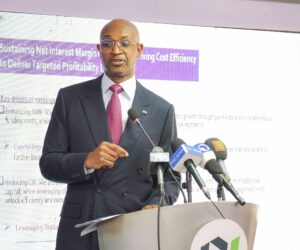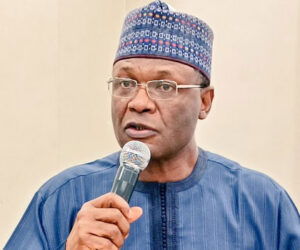Nigeria’s public debt climbed to N149.4 trillion ($97.2 billion) in the first quarter of the year, up from N144.7 trillion ($94.2 billion) three months prior, data from the statistics office on Friday showed.
The 3.2 per cent rise derived strength from local borrowing, which grew to N78.8 trillion as the government took on more naira-denominated debt during the review period.
That drove local debt’s share of Nigeria’s entire public debt to 52.7 per cent, compared to external debt’s share of 47.3 per cent.
Nigeria’s appetite for debt has gained more intensity since President Bola Tinubu took office in May 2023, with the nation’s total debt stock in naira increasing by 348.6 per cent in less than two years between June 2023, when it totalled N33.3 trillion, and March this year.
Debt service-to-revenue ratio, which gauges how much of the cash generated by the government goes into repaying debt, stood at 156.8 per cent as of early May, compared to 29.1 per cent as of 2014.
This week, President Tinubu wrote the parliament for permission to raise fresh $2.3 billion debt in Eurobond and issue $500 million in sukuk. The latter aims to refinance a maturing debt and fund some infrastructural projects in the country.
“Lagos state recorded the highest domestic debt in Q1 2025 with ₦874.03 billion, followed by Rivers with ₦364.39 billion, while Jigawa state recorded the lowest with ₦1.06 billion, followed by Ondo with ₦11.76 billion,” the debt data stated.
The Minister of Finance and Coordinating Minister of the Economy, Wale Edun, had earlier, at the 55th Annual Accountants Conference, said the government plans to refinance high-cost debt and centralise all government funds under the supervision of the Central Bank of Nigeria (CBN) to enhance transparency and cut borrowing costs.
ALSO READ: Nigeria’s public debt hits N142 trillion in Q3 2024
He added that ongoing fiscal and monetary reforms were already improving Nigeria’s debt sustainability outlook.
“We are taking deliberate steps to refinance our expensive debt and bring down the cost of borrowing. This will ease fiscal pressure, free resources for development spending, and strengthen our long-term fiscal position,” he said.









